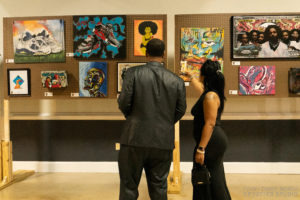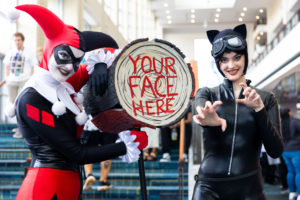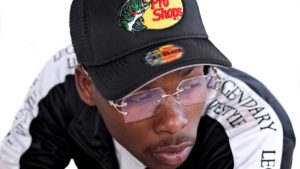INSIDE The Hotel Business With Karie & Julian Brittano

In South Boston, Virginia, Julian and Karie Brittano are spearheading the restoration of the historic John Randolph Hotel located at 327 Main Street. Julian, known for his role on the TV show Greenleaf, and Karie, a versatile entrepreneur involved in film, real estate, arts, and philanthropy, are bringing their unique expertise to this ambitious endeavor. With previous experience owning a film studio in High Point, North Carolina, the couple’s commitment to innovation and community enhancement is long standing. As the revitalization progresses toward its estimated completion in early 2024, the Brittanos’ project stands as a testament to the potential of historic preservation and the nuance of public-private partnerships. To learn more visit www.therookhotels.com.

How would you describe your time at North Carolina A&T?
Karie: Well, A&T was the bomb, I will say. I started my first two years of school at Alfred State, which was in New York. So to go from a school where there were very few minorities, less than 12%, to attending a predominantly HBCU with teachers, professors, just being able to see brown people, I had never experienced that before. That was probably one of the reasons why I never really left.
What inspired you to study construction management?
Karie: I did most of my education in architectural engineering. Over time, I learned that being an architect or engineer required passing a bar and carrying a lot of liability. After learning more about where my interests really stood and the things I liked, it aligned more with construction management so I decided to pursue that instead.
How were your teenage years different than your twenties?
Karie: Oh, that’s a good question. I say, as far as my teenage years, I think being the only child and being really close to my family, especially my grandmother, I had a strong sense of respecting my elders. I was probably more of a people person during my teens. I had my own aspirations, but I tended to mute my voice more often compared to my twenties. In my twenties, it was the era of authentically pursuing what I liked and wanted to do. I was figuring out what that really was and not paying attention to anybody else’s narrative of my desires.

What were you doing prior to landing a role on Greenleaf?
Julian: Back in 2015, I owned a club and restaurant in southern Virginia, and I actually ended up losing it due to technicalities of my own. I don’t put any blame or fault on anyone else; I was the head, so I had to wear it. But I had to make a pivot and transition from losing my establishment to reinventing myself and determining what I really wanted to do with my life.
So I started out in the background for a couple of weeks—literally two weeks—from the first assignment that I booked in October of 2015 to actually landing on Greenleaf as an extra. And then on that day, we were on set at the Blues Club when Miss Oprah walked out. She was, you know, being Oprah—just a pleasant personality and presence. She started a conversation with me, asking, “What are you doing?” Now, mind you, the assistant directors and whatnot had me do the assignment as a background person: flip these bar stools down and walk off to the side. That was my directive, so I did that. Miss Oprah was sitting less than 10 feet away from me. She asked, “What are you doing?” I replied, “I’m here to help.” She said, “No, you work for Auntie Em.”
I agreed, “You’re right, I do work for Auntie Em.” She spun back around the bar stool, and we shot the scene a couple more times. She spun around one more time and asked, “Sir, what’s your name?” I said, “Julian.” She then inquired, “How long have you been acting?” I replied, “Two weeks,” as it had only been two weeks since I got out there. Surprised, she exclaimed, “Two weeks, and you’re already here on the show with me?” I thought about it and said, “Yeah, I guess that’s where I’m supposed to be.” From there, the day just kind of went on. She addressed the production crew, directors, and writers, saying, “Guys, this is Julian. He’s been acting for two weeks.”
At that time, I was worried they might kick me off the set, thinking I hadn’t been acting long enough. But that wasn’t the case at all. I suppose she felt my intention, as I had gone through a pivot in my life regarding what I wanted to do. I had made a promise to myself that I wanted to get into the arts and start being expressive like that, tapping into that. I said, “If I ever got a platform, I would use it to help others.”
So that’s what it was. She must have sensed that intention from me, and I was confident in what I was doing. From there, the day went on, and by the end of that first day of filming on Greenleaf, production had bumped me up. She had them make me her co-star on the show. I got an opportunity to be her co-star, have a role with lines and everything. It just changed the entire trajectory of what I was doing.
What lessons did you learn while being on set with Oprah?
Julian: Just being confident in yourself, knowing who you are, and what you bring to the situation. A lot of times I like to say people ask, “Well, what do you bring to the table?” Even before it was a thing of saying, “Well, I build my own table,” I always said, “Well, I brought the table.” And I always lived like that. Even, like I said, before the acting, I was already an entrepreneur. I’ve always been a boss in my life, so I always felt that confidence. Regardless of my acumen or level of skills or whatever it was, I always felt confident that I could go and do it. So just resting assured in that and being me, that’s one thing that I took away from being on set with Ms. Winfrey. And then just learning to sit and watch. Instead of being one of those people who wanted to be out there or just kind of be talking just to be talking, no, let me know exactly what I’m here for and be present. That’s one thing that I really took away.

How did you first hear about the Randolph Hotel site?
Karie: I heard about the John Randolph while I was an adjunct professor at DCC. I was doing some project management work there, and the current president of the Workforce Development Division, Dr. Jackson, knew of some things that we were doing before in High Point. He let us know, ‘Hey, I’m not sure if you’ve ever heard of the town of South Boston, but there’s a project out there.’ He mentioned that the town manager was really looking for a group as passionate as the town itself to get this project off the ground and see it through.
I heard about it and told Julian, my husband, ‘Hey, there’s this opportunity in South Boston. Do you know where South Boston is? What do you know about the area?’ He was somewhat familiar with Virginia International Raceway (VIR), so he had heard of the area. We thought, ‘Okay, let’s check it out.’ Because if the town is backing it, and we’ve heard a lot about public-private partnerships and the need for understanding that it takes cooperation from municipalities and townships, and they’re already involved, let’s see what we can do.
What do you like about the South Boston area overall?
Karie: What I really like about it is the heartstrings they have and the passion they exude. With a smaller town, you can genuinely feel the support. They’re really invested in this project. You can see in their eyes how excited they are to witness this endeavor come to fruition. So, if they’re behind it, how could I not be? The town is already invested, they’re supportive of us pursuing this. So, what do we stand to lose, other than the opportunity itself? When you’re in a space where people are already rallying for something, it’s important. If they don’t care, why should I?
The understanding comes from hearing what this means to them and how much positive change it will bring to their community. Especially being African-American, introducing different representation matters. Many might not realize that these small towns are often minority-majority areas. While you might see confederate flags and such around, it’s crucial to understand that when we unite, we can initiate the necessary changes. It all begins with representation.
Why was Choice Hotels the ideal brand to link up with?
Karie: Well, as a franchise, we are affiliated with Choice Hotels. They essentially serve as our beacon, drawing customers and directing travelers towards us. They provide a portal and a line to guide consumers, especially those who are seeking travel options or already have membership points with various hotels.
By partnering with Choice, it informs customers about our presence in a specific destination, leveraging their membership points or simply offering a place to stay. Collaborating with an international partner like Choice was a significant accomplishment, particularly for a tertiary market. They were the ideal team for several reasons. They approached us as a united front, and I sensed their supportive and cohesive nature as a system. Sometimes, when it comes to minority diversity initiatives, it can feel like a last-minute effort, lacking a well-defined plan or strategy for involvement and scalability.
With Choice, it was different. Meeting John, Marcus, Fran, and others, I could see their passion for what they were already offering. They were well-acquainted with our area, the market challenges, and our situation in the tertiary location. Choice emerged as our greatest supporters, and they reassured us of the support we could expect as their partners.
What is your vision for the design and future of the hotel?
Karie: Most definitely, I would love to expand the Rook concept. Our design team and I have been discussing a term, ‘regal.’ This choice holds particular significance as African-Americans. In this realm of black excellence, we don’t intend to confine it just to us; inclusivity is crucial. We want everyone to feel regal. That’s why we’ve embraced this term—to encompass all. The feeling of luxury, richness, and the vibrancy we envision in our spaces can be universally experienced. Furthermore, as we expand, our aim is to integrate various technologies and connect with the communities where our hotels will be situated. Our goal isn’t solely to establish hotels and let them be. Community engagement is essential. We aspire to thrive alongside each community we introduce a Rook establishment.
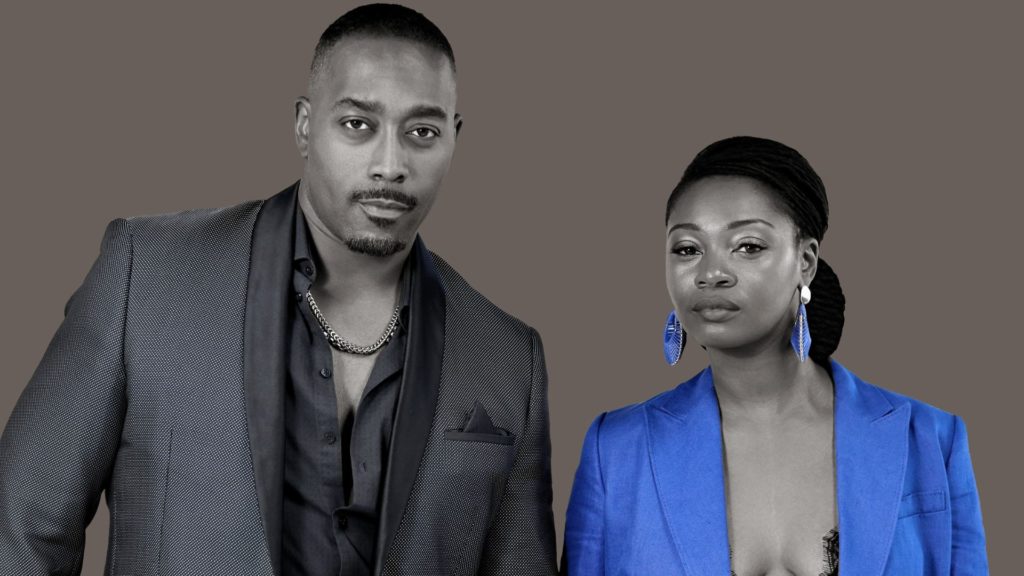
How does your artistic side help you with construction?
Karie: Patterns. I say, just being more of an artistic mind, I tend to see things more rhythmically. I group things together in a way that makes sense to me. This approach is beneficial in general contracting or working with subsections that are part of the larger tasks. You need to understand each specific section and its components to complete it and move on to the next task. So, I believe my artistic side has shown me the rhythmic aspects of the construction process. Some people might find rhythmic tasks boring, but for me, it helps me perceive patterns, which I suppose aligns with me being a person living with Attention Deficit Disorder (ADD).
What will it take to achieve more diversity in the industry?
Karie: In the construction space, hotelier space, or which space? Because they’re all limited. I say it starts with representation. I know for myself, when you think of the construction field, you don’t usually think about project management, estimating, or a lot of the more behind-the-scenes aspects of construction. You tend to imagine the people out there in the hot sun or using tools. However, there’s a lot more to it than what you see on the surface. As I delved more into my field and space, it opened up for me. The more women and minorities I saw, and they saw me, we created our own sorority or fraternity within that realm. So, I believe it comes down to representation. I’m aware of the many equity inclusion programs out there, but we still have to show up, be present, and ensure we support each other.
How do you feel about the future of film in North Carolina?
Julian: Honestly, I believe there’s a lot of great talent here. You got a lot of colleges and universities, which bring a lot of young people. In this day and age, they all want to generate new, fresh content. Everybody’s looking to handle their social media and branding. And that all requires cameras—you definitely need videos, whether it’s on your phone or a camera, high-end or mid-range, it doesn’t matter. You have people who are always looking to identify new content. The state offers a lot of beautiful landscapes again, including the ocean, mountains, wilderness, and inner cities. It’s a melting pot here, with a plethora of people from different areas like the Triad, Triangle, Charlotte, Wilmington, and the shore. So, there’s a lot of opportunity here.
I know that legislation, senators, and film commissioners are working tirelessly to prove that creative commerce is indeed a significant factor. I’m fully supportive of all these activities here. It’s wide open, despite certain ongoing issues like the writer’s strike. If that’s not resolved, it will likely impact directors and other unions. This leaves things open, especially considering the direction streaming has taken with new platforms and the mergers of major networks collaborating.
This scenario creates an opportunity for more and more talented writers, producers, directors, and actors to get involved. However, they need to develop their skills. Learning how to hone these skills is key. As long as various production companies and groups focus on refining the technical aspects and thinking outside the box, it can significantly broaden the scope for new creatives to showcase their work.
Which shows and films will people see you in this year?
Julian: We got a project that just dropped this year called Match Struck, and people can find that on most streaming platforms. It’s a psychological thriller. I’m also involved on another project called Screech Owl, or Hammer of Witches: The Screech Owl, which was more of a fantasy thriller as well. Heir of the Witch was a horror movie. And then there is a TV series called Mercy Road, which is another church drama where I got to play the pastor. That show is currently being looked at by several major networks. It was a pilot, and a lot of people were enjoying it. So I’m happy about that.
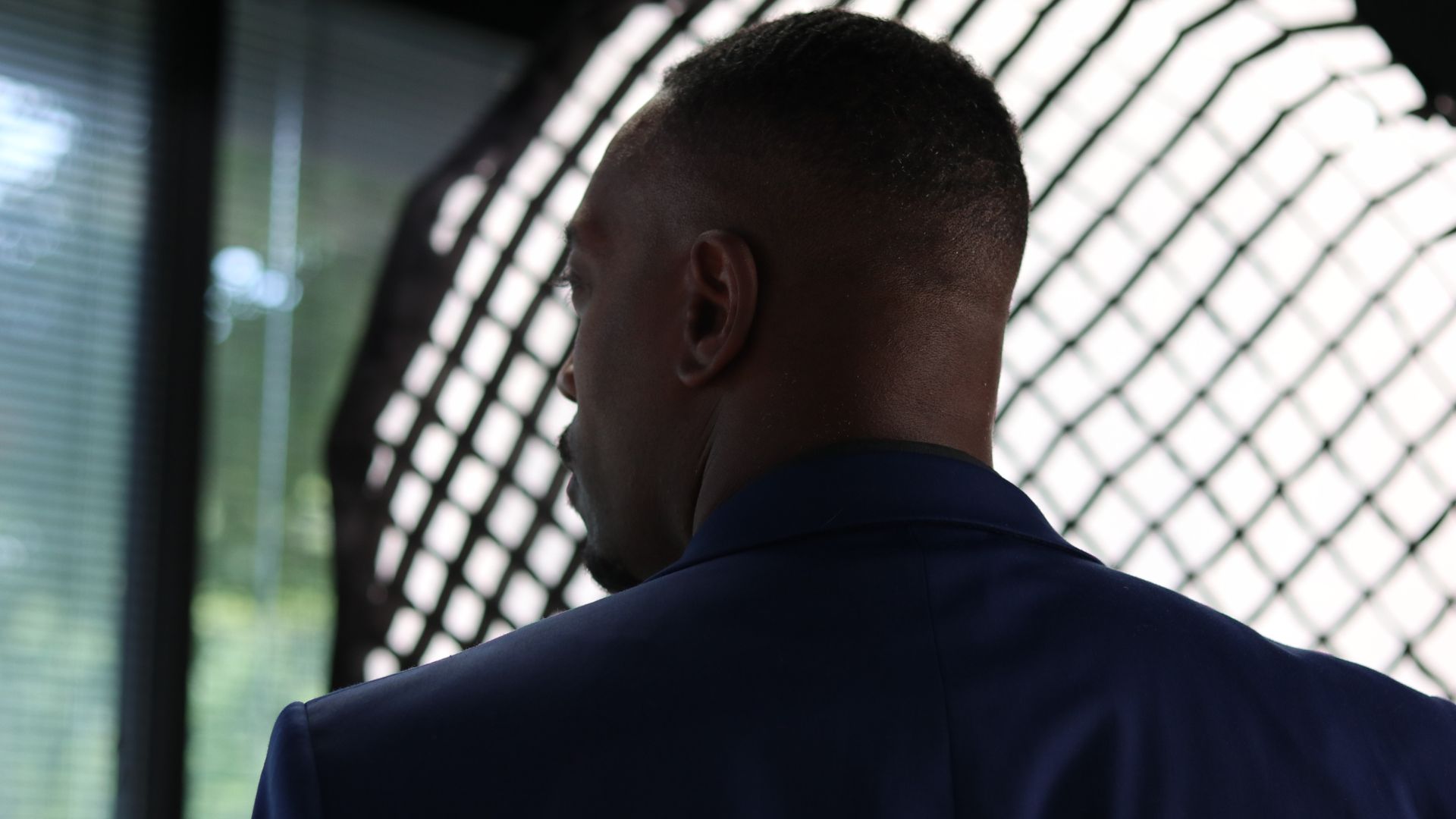
“As a director, film producer, and actor, I understand what talent goes through as well as the crew and the staff works so I can really push the envelope on a production as a whole.” – Julian Brittano
